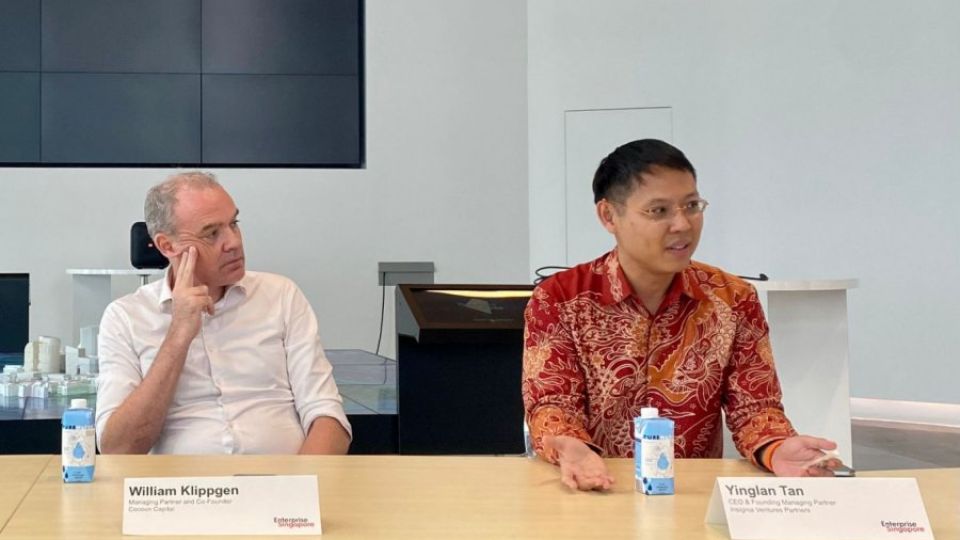November 3, 2023
JAKARTA – Southeast Asian venture capital (VC) firms anticipate tighter competition in the regional market due to the increasing presence of Chinese investors and tech talent, which they have dubbed “Global China 2.0”.
According to Insignia Ventures CEO and founding managing partner Tan Yinglan, Chinese firms, battle-tested with their experience in China’s tech market, are poised to bring their product-market fit along with their own talent, technology, resources and capital, potentially causing disruption to markets across the region, including in Singapore and Indonesia.
“This is a result of more intense competition from Chinese companies. They have seen [and] done it all back in China, and now they’re bringing it here,” Tan told a media briefing on Wednesday at the Singapore Week of Innovation and Technology (SWITCH) 2023.
The annual conference, themed “The Global Gateway to Innovation in Asia” this year, runs from Oct. 31 to Nov. 2 at Sands Expo & Convention Centre in Singapore.
In response, governments in the region had proactively introduced “interesting, innovative policies” to counter an influx of Chinese tech companies, he added.
One recent example was the Indonesian Trade Ministry’s regulation aimed at curbing the growing traction of TikTok Shop, owned by Beijing-based ByteDance, by “separating chat and commerce platforms” to “bar cross-border trade segments for transactions under US$100”.
Read also: Meta, YouTube, TikTok want e-commerce licenses. Why?
Despite Chinese tech companies and investors’ extensive experience in the Chinese market, Southeast Asian VC firms remained confident that local tech players would still “have a competitive edge” due to their deep understanding of the unique, local characteristics of their own domestic markets, Tan said.
This insight also gave an advantage to local founders in building start-ups and to local investors in financing and nurturing these start-ups, he added.
“As a venture fund, [Insignia Ventures] still hold the thesis of supporting local founders who have the potential to succeed,” he emphasized.
He also suggested that “the Chinese might be wrong” in their understanding of Southeast Asia’s diverse market and tech landscape.
Furthermore, Tan stressed the importance of local VCs partnering with strong founders in the Southeast Asian market that could “withstand the intense competition from Chinese firms”.
“We’ve got to be able to back local founders that can withstand competition from the Chinese teams who are at work 9 a.m. to 9 p.m. six days a week and are doing innovative, new [services] that are not only new in Indonesia but in the whole world,” he said.
However, Tan cautioned that competing head-to-head with Chinese giants like Tencent and Alibaba would be “rough for a local player”.
Meanwhile, Cocoon Capital managing partner William Klippgen opined that Southeast Asia was “super interesting” for European and United States investors, because the region’s market “provided no turnkey to China”.
“Also, [the region is] still super-high growth, having a wide number of emerging middle class where a lot of people are coming online, [so] this has created a lot of opportunities for investors,” Klippgen told the same media briefing on Wednesday.
Read also: Japan cautious about tech investment involving Chinese firms
Chinese companies have been reportedly increasing their investments in Southeast Asia, with multiple media citing factors such as strategic minerals, clean tech opportunities and a desire to mitigate US-China trade tensions as reasons for the expansion.
China accounts for a substantial part of foreign direct investment (FDI) in major projects in Indonesia.
Mainland China was the second-largest foreign investor in Indonesia from 2019 to 2022, excepting 2021 when it ranked third behind Hong Kong, and then almost tripled to $8.2 billion last year.
Chinese battery giant Contemporary Amperex Technology Co., Limited, better known as CATL, has committed to investing $6 billion in an electric vehicle battery ecosystem in Indonesia.
Meanwhile, East China’s Tongkun Group and Xingfeming Group were seeking Beijing’s approval for a $10 billion refinery and petrochemical complex in North Kalimantan, Reuters reported in April.


